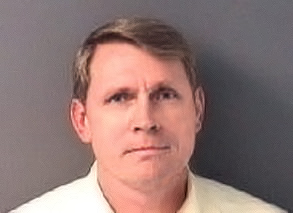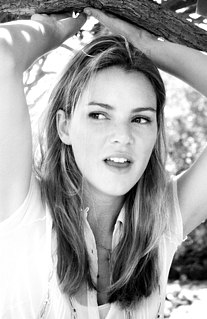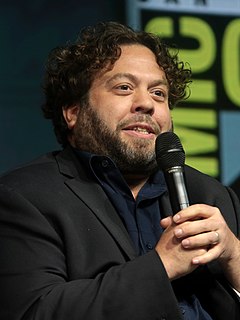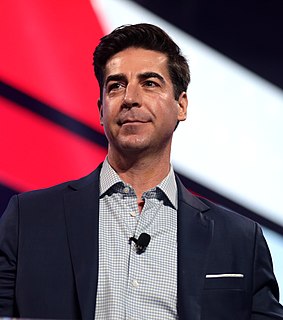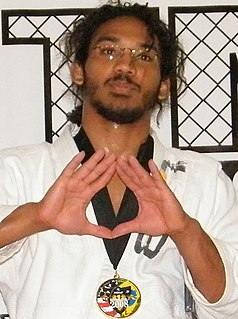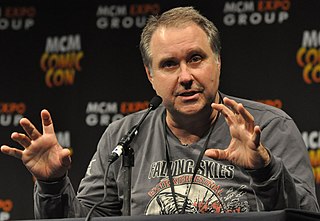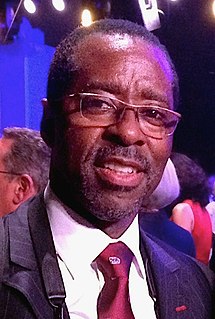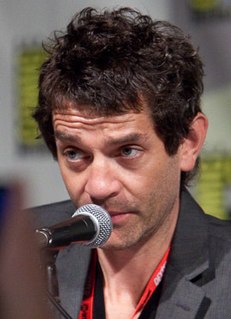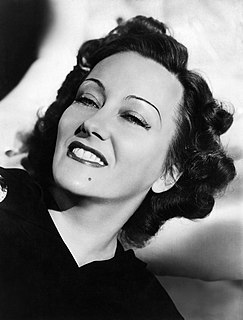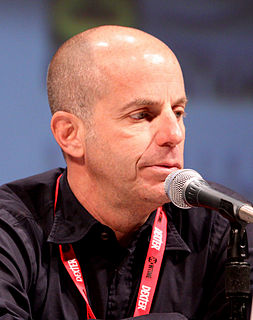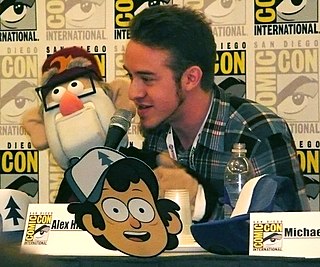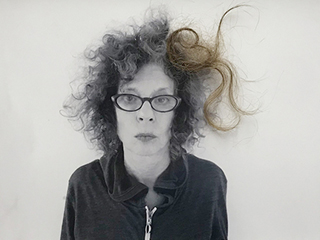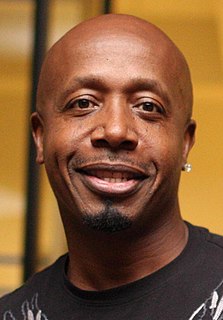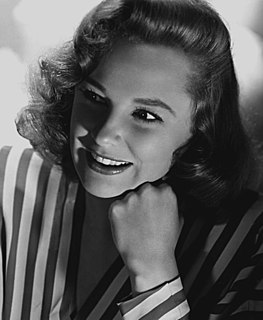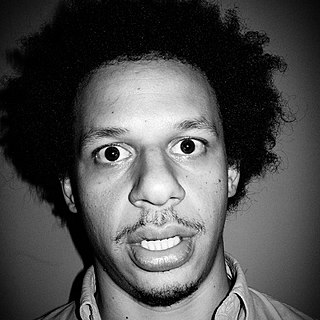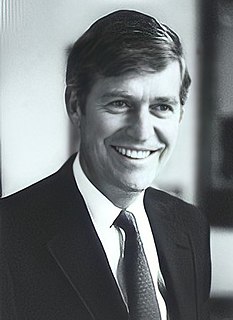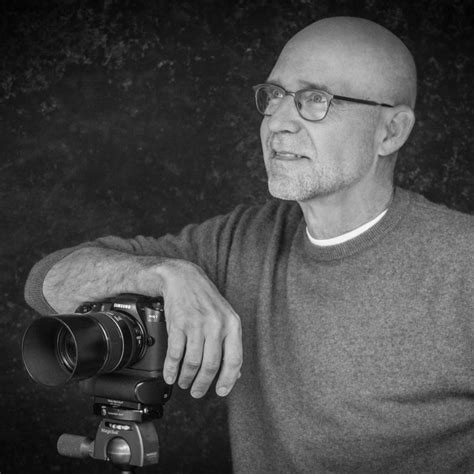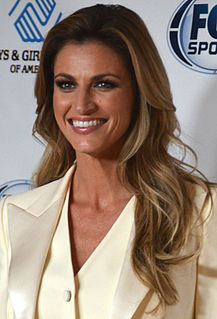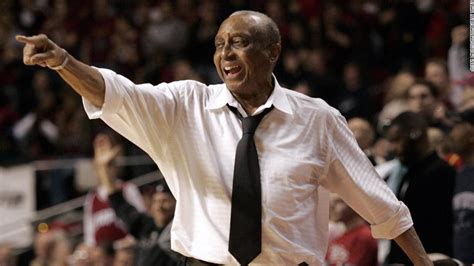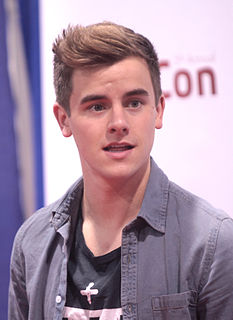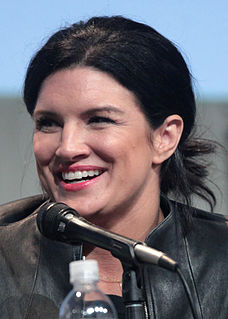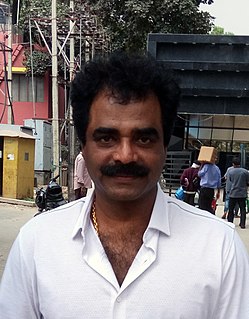Top 819 Cameras Quotes & Sayings
Explore popular Cameras quotes.
Last updated on April 14, 2025.
My take on what happened with the moon landing was [......] they suspect [ sic ] that on impact that the cameras would be damaged because back in 1969 cameras weren't, you know, like they are today, as good. So they had a studio set up at CBS to mimic the moon landing. And sure enough the cameras broke and so they flipped, you know, the CBS studio on. And what you saw of the footage of the '69 moon landing was actually at CBS studio.
'Mars Needs Moms' was motion capture, where you walk into a space that's essentially a black box with cameras everywhere. It was so technical. You have these mandibles with cameras on your face and a helmet, and you have to hit certain marks. You couldn't shoot this stuff without the green-screen aspect.
I think there are two different types of people in television. There are people who can turn it on like a switch when the cameras go on, and then, when the cameras go off, they kind of lower it down a little bit. And then there are people who are on all the time, no matter if the cameras are there or not.
Every time my cameras go out on a movie, we learn something new and then we take what we learn and we put it into the next generation of the cameras so we're constantly improving. It's kind of like building a race car, racing it, then running back to the shop and working on the engine some more and tinkering with it to improve it.
My first wedding was 15 people at our condo. The second was maybe about a hundred people at this fabulous casino. And you know what? I have almost no pictures of the second one, because I put disposable cameras on the tables, because everyone said, "The best pictures are the most candid! The best pictures are the ones people just take!" So, I put disposable cameras on the tables, and guess what? There were so many kids there that those cameras were stomped on. I had so many pictures of the floor, of people's eyes, of someone's finger.
When I was asked to be a part of 'The Face,' I was like, 'This is exactly what I do without cameras.' I didn't find it any different than what I usually do for young girls - giving runway tips or just explaining how the whole industry works - but now you have, like, 19 cameras on you, documenting you while you scratch your nose.
Nick and Nate Diaz. We're different people, we have different personalities. But I have mad respect for them because that is them. That is Nick and Nate being themselves and not putting on a front. Not acting differently when the cameras on than when the cameras off. I got a lot of respect for Nick and Nate for that reason.
Working in 3D I didn't experience much of a difference, except that the cameras are very big so they can't be moved around with as much ease. It was more like, when you've seen photos of cameras from the 1930s being moved around with these huge cranes. So there was something quite sort of old-fashioned about it almost.
So they were turning, after all - those cameras. Life, which can be strangely merciful, had taken pity on Norma Desmond. The dream she had clung to so desperately had enfolded her. Norma: You see, this is my life. It always will be! (In a whisper) There's nothing else - just us - and the cameras - and those wonderful people out there in the dark. All right, Mr. De Mille, I'm ready for my close-up.
For a period of time, I carried cameras with me wherever I went, and then I realized that my interest in photography was turning toward the conceptual. So I wasn't carrying around cameras shooting stuff, I was developing concepts about what I wanted to shoot. And then I'd get the camera angle and do the job.
If I'm shooting actually a live-action movie and I feel like I can get the shots that I need with the existing 3D cameras, then I see there is no reason to not use those-to not shoot it in 3D. But there are limitations to the 3D cameras in terms of the amount of them, in terms of the size of them, in terms of where you can actually shoot them. There are definitely limitations so you have to weigh the costs. And you have to weigh also what ultimately what creatively you want to get.
I've been doing photography in one form or another for, oh golly, over seventy years. I don't carry cameras. I used to. For many years I carried cameras wherever I went. Photograph whatever I saw that was of interest. In the last years, I've only used cameras to explore thematic ideas which presented themselves first. And then bring out the cameras to try to explore that idea.
For a period of time, I carried cameras with me wherever I went, and then I realized that my interest in photography was turning toward the conceptual. So I wasn't carrying around cameras shooting stuff, I was developing concepts about what I wanted to shoot. And then I'd get the camera angle and do the job
With photography, everything is in the eye and these days I feel young photographers are missing the point a bit. People always ask about cameras but it doesn't matter what camera you have. You can have the most modern camera in the world but if you don't have an eye, the camera is worthless. Young people know more about modern cameras and lighting than I do. When I started out in photography I didn't own an exposure meter - I couldn't , they didn't exist! I had to guess.
It makes sense to have cameras in places where terrorism and crime are of particular concern - such as in Times Square or near major bridges and tunnels. It would be more troubling to learn, however, that the government has focused cameras on the front doors of our homes just to keep track of our comings and goings.
This uses a lens system, which I have used for years in various different ways, but I've never used it in the context of an interview. This is the very first time that I've done that. It's a lens called The Revolution, so it allowed me to interview Elsa [Dorfman] and actually operate the camera. Well one of the cameras, because there were four cameras there.
One thing that is very different technically is that you don't get a lot of coverage in television. Not like you do on a film. I know we don't have time for separate set-ups, so I will design a scene where I'm hiding multiple cameras within that set-up. That way, if I don't have time to do five set-ups, I can do four cameras in one set-up. It's a different kind of approach for that. For the most part, a lot of television, in a visual sense, lacks time for the atmosphere and putting you in a place.
[Marla, Shar and I] all have had very public breakups, so I think people know they can relate with us in one way or another. And this is one of the few reality shows where they didn't have the cameras right in people's faces. Like when we were sitting around the table talking with the divorced people, the cameras were way back. And we just listened. Sometimes people just need an ear.
Everybody has their iPhone cameras, BlackBerry cameras, and I see those cameras pointed up at me all the time now, which is actually really good because of what it does for me and my band. There is no time for us not to be on our toes because they're on all the time whenever you're playing. I think it's very healthy.
Cameras are dangerous. With no waiting period or background check, any whack-job could just stroll into a Wal-Mart and walk out with a semi-automatic. Now, for years I've been pressing for stricter regulations on cameras, especially around our elected officials. Too many political lives have been cut short by some crazed shooter.
The world of the stage and the performance on the stage usually does not tend to translate very well - it doesn't tend to hold very well - once cameras are on it; it's not like it's terrible or embarrassing or bad anything, but, I, as an actor, would perform a role differently for an audience than I would for just cameras.
The way social media is now, and people are with cameras - we all live different lives whether you're in the spotlight or not. I mean, you can't be a boss or an executive of a big time company and act a fool, because there are cameras everywhere and people are going to document it and take pictures. I'm not used to stuff like that.
At the beginning, people laughed at me because I was using snappies. Sometimes, a celebrity would look at my camera and go, Oh, I've got one of those. I'd feel like handing it to them and saying, Well, you take the pictures then. But I like using snapshot cameras because they're idiot-proof. I have bad eyesight, and I'm no good at focusing big cameras.
I both didn't know Owen [Suskind] beforehand and didn't have any connection to the autistic community. But Owen wasn't really a problem, because he participated in the writing of the book and wanted people to see him as he truly is. As far as the cameras, Owen lives in the moment and the cameras really didn't distract him.

